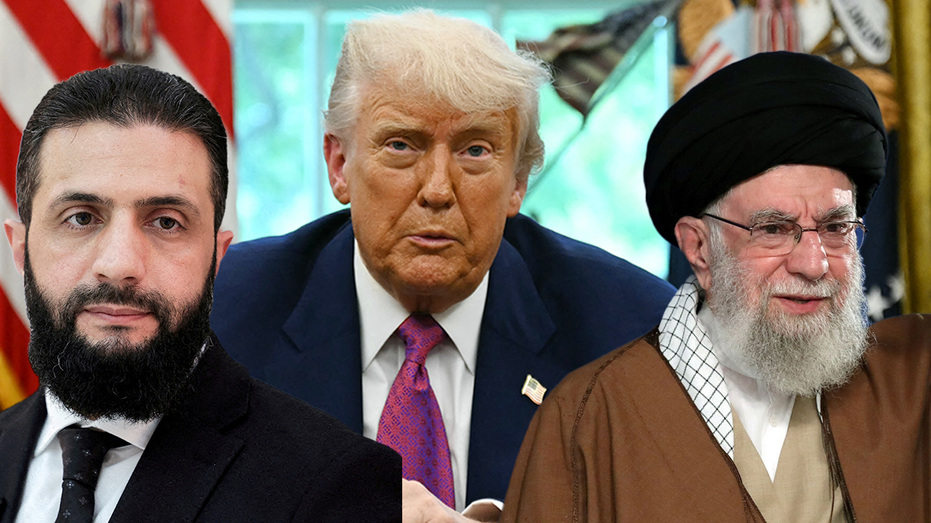Trump’s High-Risk, High-Reward Strategy: Normalizing Syria-Iran Relations Amid Regional Tensions
Trump's policy shift eases Syria sanctions to curb Iranian influence amid concerns over empowering jihadists.

President Donald Trump’s recent decision to lift long-standing U.S. sanctions on Syria has triggered debate over both the motives and potential consequences of this significant policy reversal. By becoming the first American president in a quarter century to meet with Syria’s leader, Trump signaled a marked departure from his own previously stated position and the stance upheld by several past administrations.
Trump’s pivot was especially striking given his public statements just last December, when he referred to Syria as "a mess" and insisted “the United States should have nothing to do with it.” Now, the administration’s willingness to engage Damascus is being interpreted by analysts as an effort to counterbalance Iran’s influence in the war-torn nation and throughout the broader region.
Behnam Ben Taleblu, a senior fellow at the Foundation for Defense of Democracies specializing in Iranian affairs, described the move as a “high-risk, high-reward gamble.” Taleblu argues that if managed correctly, normalization with Syria could prevent the country from serving as a staging ground for future Iranian operations. However, he cautioned, “if it fails…Washington would have ended up empowering a jihadist government in Damascus that does not have full control over its own territory.”
The backdrop to this diplomatic outreach is the December collapse of Bashar al-Assad’s regime, which was swiftly replaced by Hay'at Tahrir al-Sham (HTS)—a group with roots in al-Qaeda and still designated a terrorist organization by the U.S. and United Nations. The fall of Assad not only ended decades of authoritarian rule, but also represented a major setback for Iran’s regional ambitions, as Tehran had invested heavily in supporting Assad’s government.
Following the change in Damascus, Trump justified sanctions relief as a means to encourage Syria’s recovery and integration into international diplomacy. This announcement was quickly followed by a similar move from the European Union, which also agreed to ease restrictions. The White House has pressed the new Syrian authorities to establish diplomatic ties with Israel, hoping to reinforce regional stability.
Yet, HTS leader—and now Syrian President—Ahmed al-Sharaa has thus far withheld agreement on formalizing relations with Jerusalem. Many Arab nations remain deeply resistant to such steps, citing ongoing Israeli military actions in Gaza as a primary obstacle.
A central challenge facing the new Syrian administration is suppressing Islamist extremist factions, an issue analysts say will be crucial if Syria hopes to regain global legitimacy as it reopens for trade and diplomatic engagement. Ben Taleblu notes that the resurgence of terrorist organizations remains a persistent risk, particularly as the nation attempts to reconstitute itself amid ongoing conflict.
Iranian leaders have responded negatively to Trump’s Middle East initiatives, with Supreme Leader Ayatollah Ali Khamenei issuing harsh criticisms following the president’s regional visit. According to Taleblu, Tehran views the U.S. overtures as part of an ideological struggle for influence and is biding its time, anticipating missteps by Washington or Jerusalem.
Furthermore, Taleblu points out that Iran has historically exploited instability and marginalized populations across the Middle East, and is likely to double down on supporting non-state proxies in Syria, Iraq, and Lebanon if opportunities arise. “Exploiting disarray is a specialty of the Islamic Republic,” Taleblu warned, emphasizing the need for robust U.S. pressure to prevent further Iranian encroachment in Syria.
Syria remains fractured, with power struggles persisting among minority groups, remnants of the old regime, and radical factions like ISIS. Secretary of State Macro Rubio recently cautioned lawmakers that Syria may be on the edge of renewed large-scale civil war—a scenario which could quickly unravel nascent stabilization efforts and create new openings for Iran and other actors.
For the Trump administration, the challenge lies in encouraging the new Syrian government to address grievances among various segments of the population, many of whom have suffered through years of violence and deprivation. Critics warn, however, that the administration’s traditional opposition to nation-building may undermine prospects for lasting peace, leaving vulnerable communities exposed to foreign manipulation.
Looking ahead, analysts anticipate that Iran will play a long game, testing the resolve and resources of the U.S. and its allies as they attempt to reshape the regional order. The outcome of Trump’s Syrian gamble—whether it stabilizes the region or adds fuel to enduring conflicts—remains uncertain.




